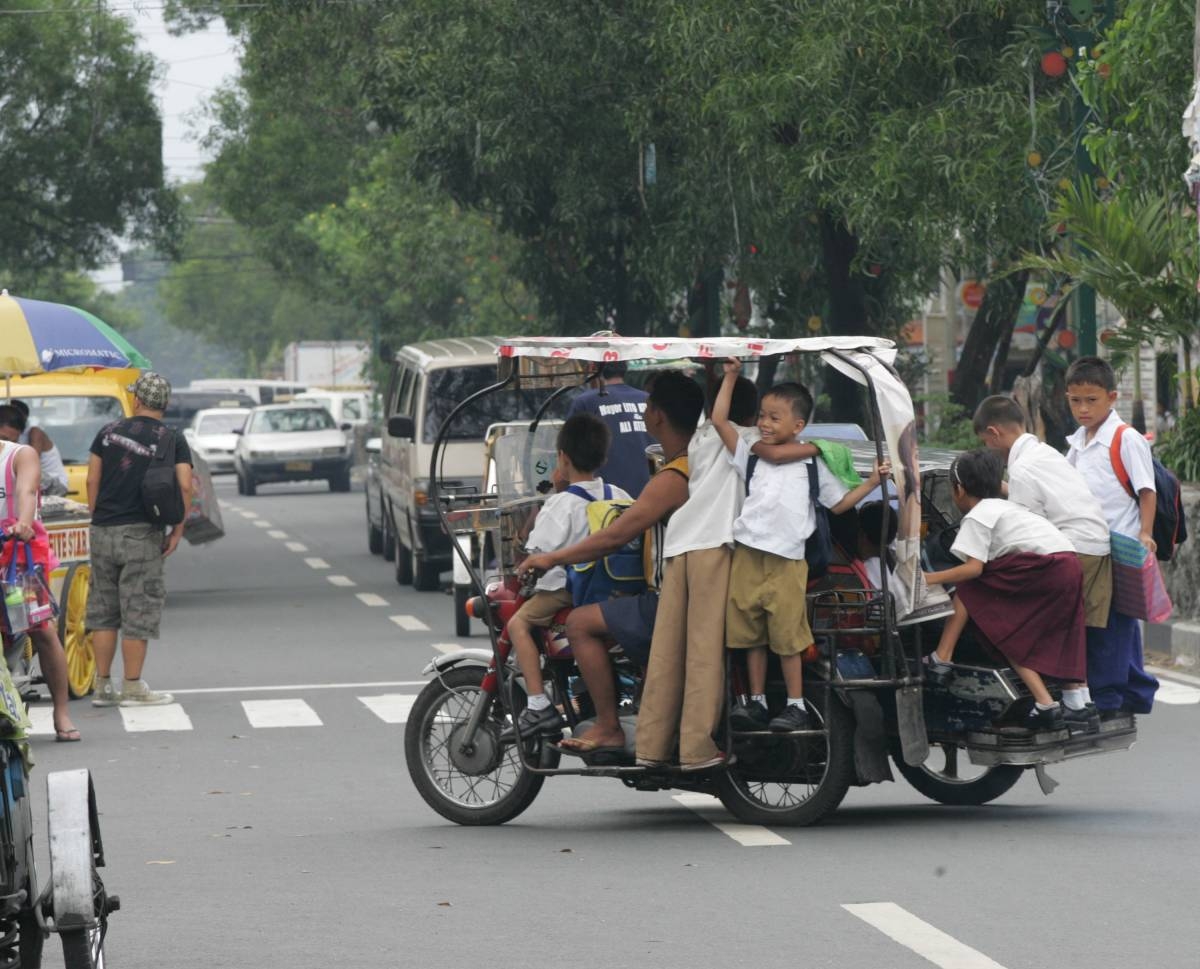MANILA, Philippines: Interior and Local Government Secretary Benjamin Abalos Jr. has called on local government units (LGUs) to ensure the strict implementation of regulations prohibiting the use of tricycles and pedicabs on national highways. This directive comes in the wake of an unfortunate accident involving a tricycle and a passenger bus in Labo, Camarines Norte on February 4.
Abalos emphasized the need for LGUs to prioritize the safety of the riding public, as the failure to enforce these regulations often leads to traffic congestion and accidents. While tricycles and pedicabs serve as accessible and affordable modes of transportation, their operation on national highways poses significant risks.
To support his call for stricter enforcement, Abalos cited several directives that explicitly prohibit the use of tricycles and pedicabs on national highways. These include DILG Memorandum Circular 2020-036, issued in February 2020, and Memorandum Circular No. 2020-145, which reiterated the previous order. Additionally, Memorandum Circular 2023-195 was released to reorganize the Tricycle Task Force and Tricycle Route Plan of each LGU.
It is important to note that in cases where there are no alternative routes available, the LGU, through its local legislative body, has the authority to issue exceptions to this prohibition. However, such exceptions should be carefully evaluated and granted only when absolutely necessary.
Highlighting the urgency of this issue, data from the Metro Manila Accident and Reporting System revealed that in 2022 alone, there were 2,829 recorded road accidents involving bikes, e-bikes, and pedicabs. Furthermore, a total of 2,241 accidents involving tricycles were reported during the same period.
These statistics underscore the need for immediate action to prevent further accidents and ensure the safety of both tricycle operators and the general public. By strictly enforcing the prohibition of tricycles and pedicabs on national highways, LGUs can significantly reduce the risks associated with their operation in high-speed traffic areas.
It is crucial for LGUs to recognize their important role in safeguarding the welfare of their constituents. By implementing and enforcing these regulations, they can contribute to the overall improvement of transportation safety and efficiency.
Furthermore, the enforcement of these regulations aligns with international best practices and standards. Many countries have similar restrictions on the use of non-motorized vehicles on high-speed roads to minimize accidents and ensure smooth traffic flow.
While tricycles and pedicabs play a vital role in providing accessible transportation options, it is essential to strike a balance between their convenience and the safety of the riding public. By designating appropriate routes and strictly enforcing these regulations, LGUs can promote safer and more efficient transportation systems.
In conclusion, Interior and Local Government Secretary Benjamin Abalos Jr. has rightly urged LGUs to strictly enforce the prohibition of tricycles and pedicabs on national highways. By prioritizing the safety of the riding public and adhering to these regulations, LGUs can contribute to the reduction of traffic congestion and accidents, ultimately improving the overall transportation experience for all.







